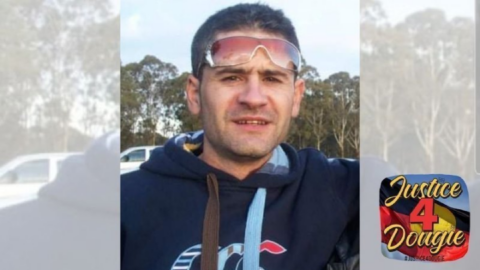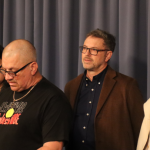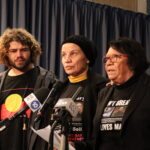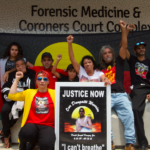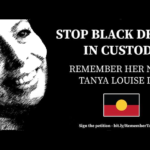NSW Coroner to Investigate Case of First Nations Man Sent Home from Hospital to Die
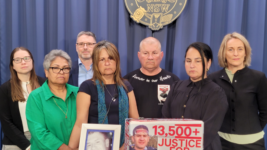
Ricky “Dougie” Hampson Junior presented to Dubbo Hospital one night in August 2021, complaining of severe stomach pain and then spent the next 18 hours in the care of staff, prior to being sent home to die without treatment.
The Kamilaroi Dunghutti man had told hospital staff that his stomach pain was accompanied by a popping and tearing sensation, and his heart was racing at 130 beats per minute.
This was later found to have been caused by two ulcers, tearing at his stomach lining and bowel wall.
The 36-year-old father-of-eight was not X-rayed, scanned or provided with any adequate treatment whilst he was at the facility. Rather he was heavily sedated and eventually sent away, being told to just drink water.
There’s a pattern of First Nations people being dismissed by healthcare providers in this country, often with devastating outcomes. Yet, despite this and the circumstances of Dougie’s case, the authorities did not determine an official coronial inquiry was warranted.
Dougie’s family, however, appeared before the press on Monday to announce that the NSW Coroner has now determined to take up the case, which followed the Hampsons having publicly called on attorney general Mark Speakman to order an official investigation into the matter two months ago.
Deserved better
Ricky Hampson Senior, Dougie’s father, told the press on Monday that his son “would have survived had” hospital staff treated him.
“Our family, with a lot of help, has been campaigning to get an inquest for nearly 12 months, to get answers as to why our son was not given the medical care he deserved,” he explained.
Dougie’s family presented NSW Greens MLC Sue Higginson with the signatures from an online petition they’d been running, which called on AG Speakman to ensure that the clear neglect in this case be examined and to determine whether it was a result institutional racism.
On receiving the petition, Higginson stated that the NSW upper house inquiry into rural, regional and remote hospitals found that healthcare services across the state are failing First Nations people in particular, adding that the evidence revealed “racism, prejudice and bias”.
“This decision has given us a feeling of relief. A weight has been lifted, but this is just the first step,” Hampson Senior continued. “Nothing will bring our son back. But we will now get answers and find out the truth about what happened in the time leading up to his death.
A systemic issue
“It’s important because the family want to know how their son could have possibly died, when he simply presented himself to an emergency ward with a ruptured stomach ulcer,” said National Justice Project director George Newhouse, who’s the solicitor representing the family.
“They want to know whether prejudice played a role in his death. And they want accountability for his death so that it never happens again,” he told Sydney Criminal Lawyers.
Newhouse represented the family of 27-year-old Wiradjuri woman Naomi Williams during the inquest into her January 2016 death, which involved the pregnant woman attending Tumut Hospital with severe pain, only to be sent home to die after being given two paracetamols and an ice block.
In relation to this death, which was a result of meningococcal and septicaemia, NSW deputy state coroner Harriet Grahame explained that the details of witness accounts and evidence presented during the inquest showed that First Nations people often receive lesser treatment due to racism.
“For too many years our health system has denied the existence of systemic racism,” Newhouse underscored. “In fact, it’s something of a taboo subject.”
The lawyer added that he hopes recommendations are made that can stamp out the “scourge of systemic prejudice”.
A system that’s failing
The NSW Legislative Council inquiry report into rural health services found that Aboriginal people right across NSW aren’t attending hospitals because they’re treated like “second-class citizens” and “not taken seriously” due to the “colour of their skin”
The committee members further asserted that while NSW Health has rolled out standardised cultural training, what’s really needed to improve the healthcare situation for First Nations people is an entrenched understanding of Indigenous history and culture.
And according to the inquiry, the way to improve this healthcare crisis would be for NSW Health and local health districts to engage directly with First Nations elders and communities to gain their understanding of how the system is operating now, and how it could be made culturally safe.
“To be honest, we didn’t understand why there was such a lengthy delay in the coroner coming to the conclusion that they would hold an inquest,” Newhouse ended.
“This is a significant case where an Indigenous man was sedated for no apparent reason and sent home to die without a diagnosis.”
